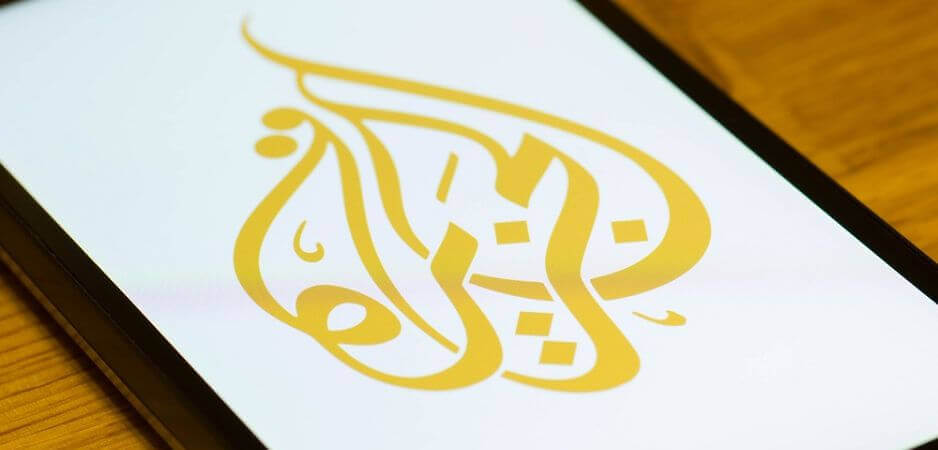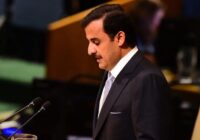To many, the dispute in the Gulf amounts to the pot blaming the kettle and twisting the truth to serve rival narratives.
Feuding Gulf states that have pumped millions of dollars into public diplomacy appear to have done better in damaging the reputations of their detractors than in polishing their own tarnished images. Qatar, the United Arab Emirates and Saudi Arabia all appear to fare poorly in how they are perceived, judged by a recent survey of American public opinion. The international community’s response to the Gulf crisis suggests, however, that Qatar has so far been more successful in garnering muted support for its call for direct talks to solve the crisis — a position rejected by its detractors.
In the only survey to date of public perceptions in the United States toward the crisis, Qatar fared poorest in its approval rating, but Saudi Arabia and the UAE, the instigators of the diplomatic and economic boycott of Doha, did not do much better.
The poll, which was conducted by YouGov on behalf of Saudi Arabia’s English language daily, Arab News, showed that a mere 27% of the more than 2,200 people queried considered Qatar a friend or ally of the US compared to Saudi Arabia with 37% and the UAE with 39%. A further 31% identified Qatar as unfriendly or an enemy of the US. Only 16% of those polled associated Qatar with its hosting rights of the 2022 FIFA World Cup, while 34% linked Qatar to being accused of supporting terrorism and 44% believed that Qatar’s state-owned Al Jazeera television network provided a platform for militant and jihadist groups.
The Arab News reporting was the latest salvo in a public relations war waged by state- or privately-owned media that operate in an environment of highly-restricted freedom of the press and often have close ties to government and/or ruling families.
The Financial Times quoted Saudi journalists as saying they had been pressured by the government to criticize Qatar. One Saudi editor described to the FT how officials have been using a cellphone messaging group to instruct journalists on how to shape coverage and what stories to focus on. “These are orders, not suggestions,” the editor said.
Focusing exclusively on the poll’s Qatar-related results, Arab News’ editor-in-chief, Faisal J. Abbas, expressed “surprise” at “how quickly the diplomatic row has negatively affected ‘Brand Qatar,’ at least in the US … It was interesting to see that despite the billions spent by Qatar on various soft power initiatives — from education to charity to international sport — the study found that more Americans associate it with supporting terror than anything else,” Abbas wrote.
Abbas made no reference to the fact that — like Qatar — Saudi Arabia and the UAE have deployed huge sums to hire a battery of US public relations and lobbying firms in a bid to garner support for their positions. Nor did he discuss what return on investment they have had.
Striking a slightly more cautionary note in one of several commentaries on the YouGov poll published by Arab News, Sir John Jenkins, a former British ambassador to the kingdom, noted: “Saudi Arabia has ground to make up here, which is an important policy point for decision-makers in Riyadh: Reputation matters in the modern world and you do not improve that without a smart, targeted and sustained communications strategy.”
In July, a random online YouGov poll suggested that of those asked whose side they were on in the Gulf crisis, 23% opted for Qatar and only 9% for Saudi Arabia. Two-thirds of the respondents said they did not know enough to choose sides.
THE WIDER VIEW
The results of the survey on US public opinion notwithstanding, Qatar appears to be faring better than the poll results suggest. A majority of Arab and Muslim states have refrained from joining the Saudi-Emirati-led campaign, which is backed by less than a score of African and Asian nations, who are dependent on the oil-rich Gulf states in financial and/or political terms. The international community has almost unanimously refused to endorse the conditions set by Riyadh and Abu Dhabi for resolving the crisis. The US, the European Union, China and Russia have effectively backed Qatar’s call for direct talks between Doha and its detractors, a proposal rejected by the anti-Qatar alliance.
The alliance’s “problem with [their] display of political bravado is that nobody else buys it, and they are awkwardly isolated in their tent woven of threads of bravado. This is mainly because their accusations are wildly exaggerated, and also hypocritical on core complaints like funding Islamist movements, having relations with Iran, or interfering in other states’ affairs,” noted prominent journalist and pundit Rami G. Khouri. “The Saudi-Emirati media propaganda pushing such accusations has been embarrassing in its ultra-thin doses of truth, and wildly counter-productive, serving only to further damage the credibility that some GCC media did enjoy in recent years.”
Khouri argued further that “in the court of global public opinion, the Qataris appear to be much more sensible, consistent, focused, and precise, while the Saudi-Emirati-led states seem to express genuine anger and fear accompanied by unrealistic and unreasonable demands, but without convincing evidence for their accusations.”
The Saudi-Emirati-led alliance has demanded that Qatar shutter Al Jazeera and other media outlets; reduce its relations with Iran, with whom it shares the world’s largest gas field; expel Turkish troops from the state; and cut ties to militant and Islamist groups irrespective of whether they have been proscribed by the United Nations or the United States. Qatar has rejected the demands as an infringement on its sovereignty.
To many, the dispute in the Gulf amounts to the pot blaming the kettle and twisting the truth to serve rival narratives that fuel their public relations and media wars. Literally all parties to the dispute are suspected of having had, at least at some points in time, links to militant groups. All, apart from Saudi Arabia, maintain often flourishing economic relations with the Iranians, and many have foreign military bases on their soil.
Investigative journalist Glenn Greenwald said in an article detailing the Gulf rivals’ investment in Washington public relations and lobby firms some three years prior to the current Gulf crisis: “The point here is not that Qatar is innocent of supporting extremists … The point is that this coordinated media attack on Qatar — using highly paid former U.S. officials and their media allies — is simply a weapon used by the Emirates, Israel, the Saudis and others to advance their agendas … What’s misleading isn’t the claim that Qatar funds extremists but that they do so more than other U.S. allies in the region … Indeed, some of Qatar’s accusers here do the same to at least the same extent, and in the case of the Saudis, far more so.”
The views expressed in this article are the author’s own and do not necessarily reflect Fair Observer’s editorial policy.
Photo Credit: g0d4ather / Shutterstock.com
Support Fair Observer
We rely on your support for our independence, diversity and quality.
For more than 10 years, Fair Observer has been free, fair and independent. No billionaire owns us, no advertisers control us. We are a reader-supported nonprofit. Unlike many other publications, we keep our content free for readers regardless of where they live or whether they can afford to pay. We have no paywalls and no ads.
In the post-truth era of fake news, echo chambers and filter bubbles, we publish a plurality of perspectives from around the world. Anyone can publish with us, but everyone goes through a rigorous editorial process. So, you get fact-checked, well-reasoned content instead of noise.
We publish 2,500+ voices from 90+ countries. We also conduct education and training programs
on subjects ranging from digital media and journalism to writing and critical thinking. This
doesn’t come cheap. Servers, editors, trainers and web developers cost
money.
Please consider supporting us on a regular basis as a recurring donor or a
sustaining member.
Will you support FO’s journalism?
We rely on your support for our independence, diversity and quality.






